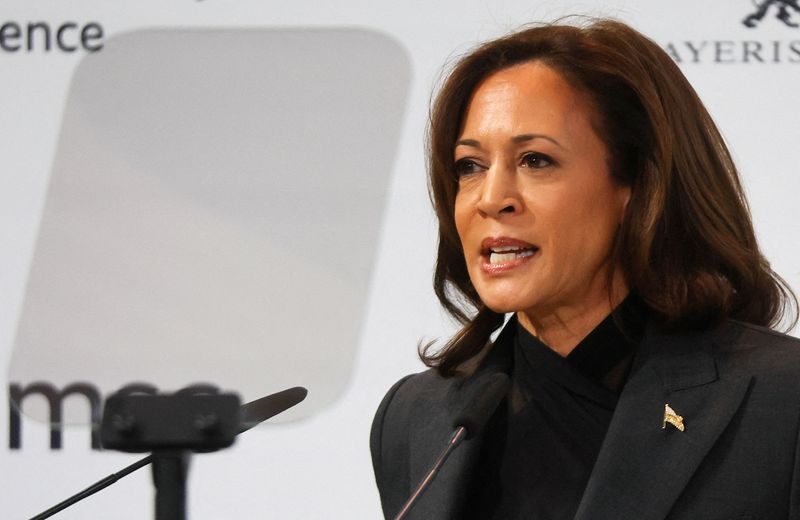By Trevor Hunnicutt and Jeff Mason
WASHINGTON (Reuters) - Vice President Kamala Harris defended the abortion drug mifepristone on Friday, calling attacks against it another attempt to attack fundamental rights in the United States, as some activist groups work to end American sales of the pill.
Anti-abortion groups have brought cases against the U.S. Food and Drug Administration (FDA) claiming the agency used an improper process to approve mifepristone in 2000 and did not adequately consider its safety for minors.
Medication abortion has drawn increasing attention since the U.S. Supreme Court last year reversed its landmark 1973 Roe v. Wade ruling, which had guaranteed abortion rights nationwide.
Democratic President Joe Biden directed federal agencies to expand access to medication abortion in response to the decision, which has allowed more than a dozen Republican-led states to adopt new abortion bans.
Harris met with reproductive rights groups on the topic at the White House, and said attacking the drug is akin to going after the very foundation of the American public health system and is not just an attack on women's fundamental freedoms.
She said there are "partisan" and "political attacks" questioning the legitimacy of the scientists and doctors who had conducted research on the drug, which was approved 20 years ago.
"We are now in a situation where there is an attempt to further attack fundamental rights to healthcare, in that there is an attack that has been placed against the ability of doctors to prescribe and people to receive medication to allow them to make decisions about their reproductive health," Harris said.
Administration officials fear that courts could disrupt access to the medication, which is also used to help women dealing with miscarriages.
Mifepristone is approved for medication abortion in the first 10 weeks of pregnancy in combination with another drug, misoprostol. Medication abortion accounts for more than half of U.S. abortions.

The FDA has said that pulling mifepristone from the market would force women to have unnecessary surgical abortions and greatly increase wait times at already overburdened clinics.
Major medical organizations, including the American College of Obstetricians and Gynecologists, weighed in on the side of the government, saying mifepristone "has been thoroughly studied and is conclusively safe."